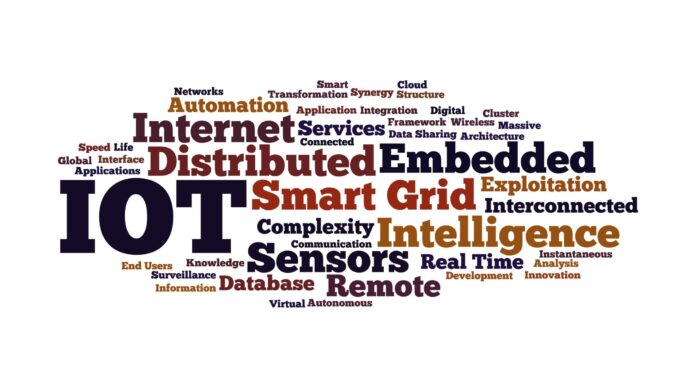Forbes list calls out Jawbone, Genband, SIGFOX and more IoT startups from around the world
WASHINGTON – “Internet of Things” technology involves connecting every device possible to the Internet and promises to be one of the biggest economic revolutions since industrialization.
IoT has applications across a wide range of industries but often requires unique infrastructure solutions based on the particular deployment. Multinational giants such as IBM, Microsoft and Google have invested heavily in IoT, and have been joined by numerous IoT startups from every corner of the globe.
Recently Forbes named the top 100 IoT startups. In the interest of brevity, we’ll take a look at the top 10.
Jawbone – This Bay Area company has found great success with its mobile fitness tracker, which combines wearables with the lucrative health and fitness consumer market. Jawbone is one of the leading competitors to the more-established Fitbit. The company scored $635.8 million during its last fundraising series.
Jawbone talks about the Internet of You. In order to enable that vision, there is hardware that you wear combined with software that pulls everything together in the cloud and analyzes it to create recommendations.
Genband – Texas-based Genband is breaking into the new market niche of helping companies find an IoT fit that is right for them and has raised $394.5 million in funding.
Genband last year launched its Kandy software development platform, which leverages WebRTC and cloud computing to enable a robust ecosystem for developers to easily integrate APIs, SDKs and more into customizable software applications. In a nutshell, Kandy can be used to create the software needed to support virtually any IoT service.
Silver Spring Networks – This Bay Area firm offers modular smart city and smart grid solutions and has seen steady growth by focusing on the most basic services that cities need: lighting, sewage, electricity and running water.
Mike Madrazo, VP of analytics product management, said, “Robust analytics help utilities improve reliability, reduce outages, ensure safe operations for both utility personnel and the public, increase efficiencies, and strengthen the utility customer relationship.”
View Glass – Yet another Bay Area outfit, View Glass offers smart home solutions in the form of smart windows, allowing homeowners to adjust the tint in order to increase comfort and save energy. Last funding brought in $249.5 million.
At first glance, View Glass products might seem purely aesthetic, but they can actually have a substantial impact on utility bills. Controlling the tint of the windows to change the amount of sunlight coming through helps a building better retain heat or cool air more efficiently. View Glass pairs its products with an intelligent system that can adapt according to the amount of sunlight and outdoor temperature making buildings more comfortable and more affordable.
GizWits Inc. – China’s leading IoT solutions company, GizWits is involved across the IoT ecosystem ranging from smart home solutions, to industrial IoT.
China is looking to break into IoT in a big way with the government pushing its “Made in China” IoT program. GizWit has already made early inroads into a market that could soon be worth trillions. The company claims to have “10,000 IoT developers. Over 3 million GizWits-powered IoT products have been produced and sold to markets around the globe.”
Jasper – A California-based firm focused on cloud computing systems to support IoT networks and infrastructure, Jasper has raised nearly $200 million in funding.
According to its website, Jasper is a leader in “Software-as-a-service (SaaS) IoT platform[s] to enable companies of all sizes to rapidly and cost-effectively launch, manage and monetize IoT services on a global scale.” Jasper is looking to cash in on the massive computation power that millions of IoT nodules will require.
SIGFOX – This European firm has deployed a number of IoT-specific networks in Europe with major carriers as partners.
SIGFOX is an IoT infrastructure company, which provides a dedicated cost-effective network for IoT devices to communicate and allows for IoT transmissions to be scalable based on clients needs. SIGFOX technology enables narrow-band Internet of Things, allowing IoT networks to function without clogging data pipes.
Gogoro – This Taipei, Taiwan-based company has secured $150 million in funding.
Gogoro has been called the “Tesla of Asia” because its business model is based around building electric scooters, which are well-suited to the crowded and often congested cities of Asia. Gogoro builds its scooters from the ground up to be IoT enabled and to leverage smart grid and smart city technologies.
Ams AG – The Austrian company raised $149.9 million in its last funding round and has a long history of being a successful semiconductor manufacturer. Recently the firm started to leverage its knowledge of precision manufacturing to build IoT sensor systems. The Ams AG transition began in 2011 when it acquired Texas Advanced Optoelectronic Solutions, a company focused on smart lighting. Ams AG isn’t so much a startup as an established firm remaking itself into one that can compete in the hot IoT space.
Zscaler – Zscaler, also based in the Bay Area, is focused on security, specifically the security of IoT networks.
Here’s what the company says sets it apart from other security firms: “Only Zscaler was architected from the ground up as a multi-tenant, distributed cloud security platform.” IoT networks have the potential to become security nightmares for users and developers, especially as cybercriminals and terrorists become more organized. Zscaler is banking on the notion that IoT end users and developers will pay for peace of mind.
According to Forbes, this list was compiled through the use of big data analytics engine Mattermark. The program reviewed more than 1 million private companies, more than 470,000 with employee data and more than 100,000 funding events. What sets these IoT startups apart from the bigger firms is their ability to specialize on one particular aspect of the IoT market, but retain the flexibility to have their systems able to integrate across multiple verticals.

